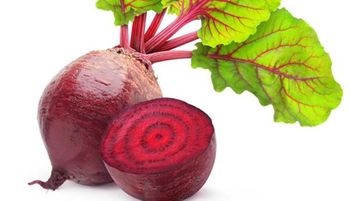Beets
From Wikiwel
(Redirected from Beetroot)
Other Names : Beta vulgaris, beet; garden beet; red beet; spinach beet, betarraga, remolacha, betterave, beterraba, Beiskohl; Rube; Runkelrübe, bieta a foglia; bietola; bietola bianca, beetwortel; biet; snijbiet, beta; mangold
See also : Beet Kvass
Special Precautions of Beets
- Because beetroot juice is so powerful, practitioners advise that its use be gradual, with very small quantities to start, and incremental increases made over time. Experts say that feeling unwell from beet juice may be a sign of “too much of a good thing,” as your body tries to flush out more toxins than your system can efficiently eliminate.
- In some cases, the mass injection of nutrients — especially vitamin C — contained in the beets overload the patients’ livers.
- To avoid overwhelming your body’s waste disposal system, start with small quantities of beetroot and gradually increase. If you start to feel unwell, reduce your consumption.
- Some experts recommend mixing beetroot juice into another milder juice such as carrot, cucumber, or apple. When juicing beets, it is advisable to alternate between pieces of beets and pieces of carrots — otherwise, excessive beet pulp could accumulate on the sides of the spinning extraction basket and cause the juicer to vibrate.
- People with chronic liver or kidney problems must be especially careful about drinking raw beet juice. Overconsumption could overload the liver and kidney, and therefore, should be taken only in very small doses.Patients with kidney problems or those at high risk of developing kidney stones may be better off avoiding beetroot juice. The NHS actually lists beetroot among the foods to avoid due to their oxalate content, for those looking to prevent kidney stone formation.1 Oxalates are a compound from which kidney stones are formed. While the root of the plant is lower in oxalate than the leaves, it is still high enough to merit caution.
- While some experts recommend approximately 1/8 to 1/4 cup per day as a reasonable starting dose for beetroot juice, you should conduct your own research based on your health condition and goals, and discuss raw beetroot juice therapy with your healthcare provider.
The benefits of Beets are
- Cancer : Fight Leukemia, Tumors, and Advanced Inoperable Cancers : The results of a later study of “red beet therapy” — the consumption of approximately 2 lbs of raw, mashed beets daily suggest that beets can help your body fight against leukemia and tumors. The phytonutrients–proanthocyanidins (betanin) that gives beets their rich purplish-red hue has potent anti-cancer capabilities lab studies show that betanin pigments can impede tumor cell growth in tissues from the: Colon, Stomach, Nerves, Lungs, Breasts, Prostate, Testicles. The fiber found in beets seems to increase the body’s special immune compounds that are responsible for detecting and removing abnormal cells before they can become cancerous. Beets are a more effective cancer treatment when begun early. In fact, the regular consumption of beets might be most effective as a preventative treatment. Because beets contain antioxidant and anti-inflammatory molecules, it is statistically likely that they can reduce the risk of many kinds of cancers. With the high antioxidant content, beets are a great leukemia natural treatment. The World’s Healthiest Foods says, “Eventually, we expect to see large-scale human studies that show the [cancer] risk-reducing effect of dietary beet intake.”
- they detoxify the liver, kidneys, gallbladder, blood and lymph.
- relieving constipation.
- Beets are high in nutrients such as folate, manganese, potassium, and vitamin C, making them an excellent source of nutrients, and a particularly good choice for pregnant women who have higher folate needs during pregnancy.
- anti-inflammatory : In their uncooked state, beets also contain an important compound called betaine, which research has shown reduces several compounds linked to inflammation in the body. In other words, it’s a great anti-inflammatory food that helps protect us from the effects of aging and disease.
- recommended to help purify the blood.
- help cleanse the liver–one of the most overworked organs in the body, with over 500 functions including: cleansing toxins, removing excess hormones, and metabolizing fat.
- Boosting strength and stamina
- Stimulating the immune system
- gives athletes greater energy and endurance.
- Accelerating bile secretion
- Preventing cold and flu
- Reconstructing blood (and thus obstructing cancer cell development)
- Accelerating cell growth and restoring cell nucleus
- Regulating blood pressure
- Lowering body temperature
- Strengthening skin and vein walls
- Removing heavy metals and toxins from the brain
- Speeding the formation of red corpuscles (and thus improving cellular oxygenation)
- Boosting mood
- Promoting healthy nails, shiny hair and smoother skin
- boost Nitric Oxide levels
